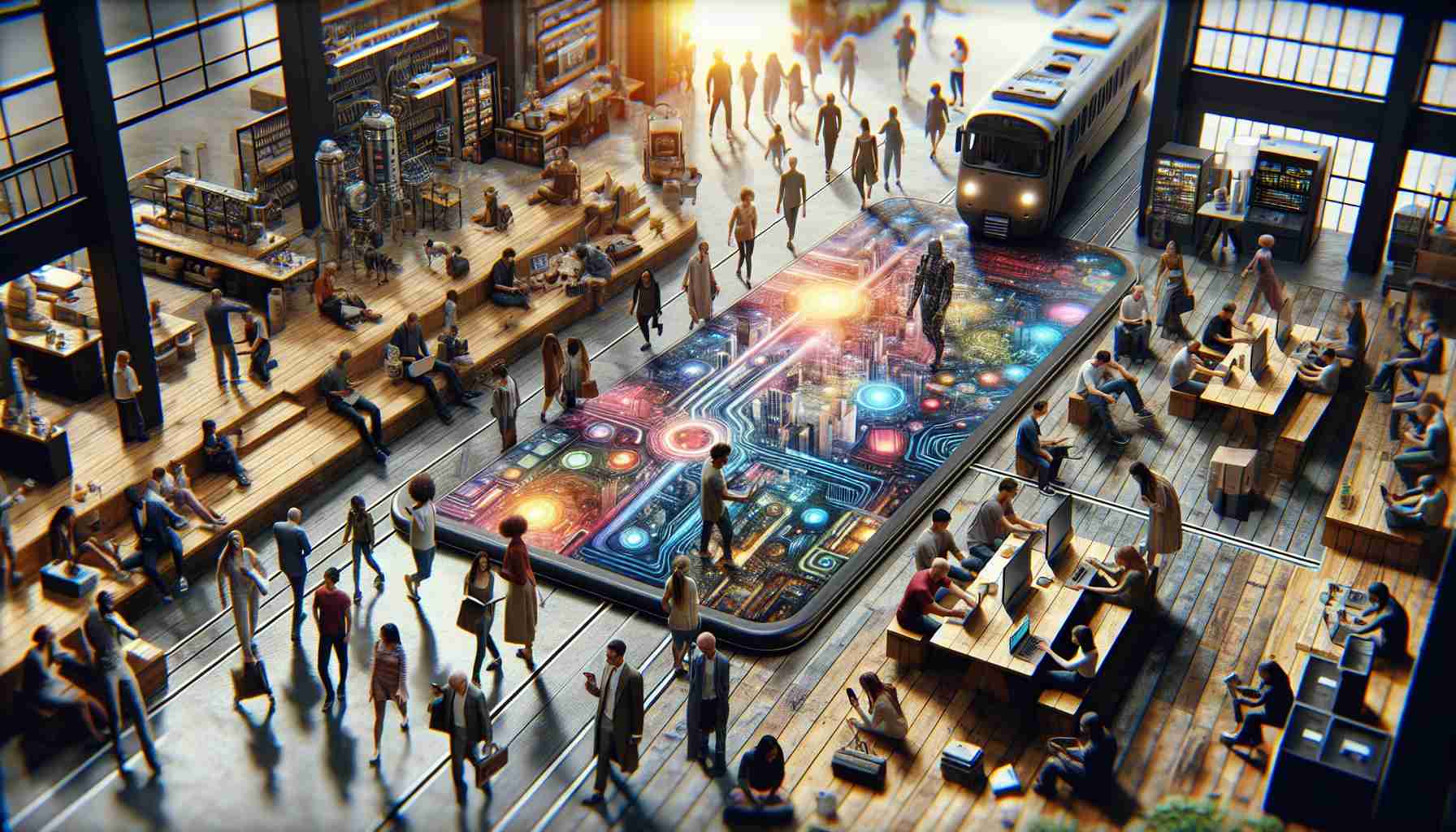Harnessing Innovation for Neurodivergent Learning
In today’s technological landscape, one woman is making waves by merging her professional expertise and personal experiences to create meaningful change in education. Nancy Sun, a seasoned engineer and mother, has dedicated her career to developing innovative tools that support neurodivergent children, including her own.
When Nancy entered the engineering field over 20 years ago, she realized that women were in the minority. Yet, the supportive community of female engineers propelled her to tackle challenges head-on. A pivotal moment occurred when she noticed her son struggled to connect with traditional learning experiences. This revelation spurred her to address the clear gaps in educational resources for children with ADHD, as her problem-solving background showed her the need for tailored solutions.
Collaborating with her husband, Nancy set out to design engaging, interactive learning tools that cater specifically to the unique needs of neurodivergent learners. By utilizing artificial intelligence, they created customized narratives that accommodate different learning styles, ensuring these children not only engage with materials but also enjoy the process of learning.
In a world where stigma often surrounds neurodivergence, these innovations aim to foster an inclusive environment that celebrates individuality. Nancy emphasizes that women engineers have the power to make a difference. Together, they can leverage their diverse perspectives to build a brighter, more inclusive future where every child, regardless of their learning style, has the tools necessary to thrive.
Revolutionizing Education: Innovations for Neurodivergent Learners
## Unlocking Potential through Tailored Learning Solutions
In the evolving landscape of education, the urgent need for innovative approaches to support neurodivergent learners has seen notable advancements, thanks in part to individuals like Nancy Sun. As an engineer and a mother, Nancy is on a mission to create effective educational tools that cater to children with diverse learning needs, particularly those with ADHD.
### **Key Features of Nancy’s Educational Tools**
Nancy’s tools are characterized by various distinct features designed to enhance learning for neurodivergent children:
– **Artificial Intelligence Personalization**: By leveraging AI, these tools can create customized learning experiences that respond to each child’s unique pace and interests. This adaptability allows for greater engagement and efficient learning.
– **Interactive Learning Modules**: Focused on making learning fun and engaging, these tools integrate gamification techniques that capture the attention of children who might struggle with traditional educational methods.
– **Accessibility Focus**: Tools are designed with inclusivity in mind, ensuring that content is accessible to children with varying cognitive and sensory needs.
### **Pros and Cons of Innovative Learning Tools**
#### **Pros**
– **Enhanced Engagement**: The interactive nature of the tools increases motivation among neurodivergent learners.
– **Customizable Learning Paths**: Individualized narratives cater to different learning styles, allowing each child to thrive.
– **Promotion of Inclusion**: Tools foster a supportive learning environment that celebrates neurodiversity.
#### **Cons**
– **Technology Dependence**: An over-reliance on technology may inhibit the development of critical social skills.
– **Cost Implications**: The implementation of high-tech solutions can be expensive for schools or families.
### **Use Cases and Market Insights**
Educational institutions and parents are increasingly adopting these innovative tools. Schools that integrate Nancy Sun’s solutions report higher engagement levels from students who traditionally struggle in conventional learning environments.
Market analysis shows a growing demand for personalized educational resources, with the global edtech market projected to reach $400 billion by 2025. This presents both a challenge and an opportunity for developers to create impactful and accessible learning materials.
### **Trends and Innovations in Neurodivergent Education**
Recent trends indicate a movement toward integrating sensory-friendly environments and augmented reality (AR) into learning experiences. By incorporating these trends, educators can further enhance the learning landscape for neurodivergent students.
### **Sustainability and Future Predictions**
As the demand for inclusive educational solutions rises, companies are increasingly focused on sustainable practices. Innovations in educational technology are expected to prioritize eco-friendly materials and energy-efficient systems.
Looking ahead, it’s predicted that the integration of neurodiversity in educational frameworks will become mainstream, driving systemic change in how educational institutions support all students regardless of their learning profile.
### **Conclusion: A Call for Collaborative Efforts**
Nancy Sun’s story illustrates the potential for personal experiences to drive social change. By harnessing the power of technology and collaboration, we can build a more inclusive future for neurodivergent learners. While challenges remain, the path is being paved toward a well-rounded education system that values every child’s potential.
For more on educational innovations affecting neurodivergent learning, visit Edutopia.
